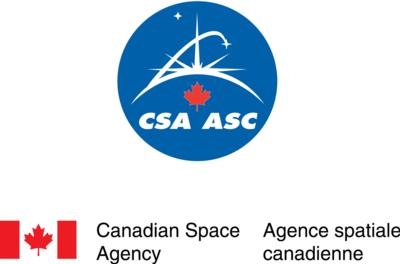Mon, Mar 14, 2016
Four New Experiments Will Benefit Both Space Travellers And Earthlings
Four new Canadian studies in the field of space health research have received funding from the Government of Canada to reduce health risks for astronauts on long-term missions. These experiments will simulate space conditions on Earth to investigate the physiological and psychosocial adaptation to space.

These research projects may also have a positive impact on health and the quality of life here on Earth. Many of the physiological changes that astronauts undergo in space are similar to problems related to aging or physical inactivity. The psychosocial effects of long-term space travel are also comparable to those experienced in remote work environments, isolated communities and among shut-ins.
The Canadian Space Agency is investing a total of $1.7 million in these studies. Workers who spend a winter season at an Antarctica research stations experience isolation similar to what astronauts experience during long-term missions to the International Space Station. They are confined with a limited group of people far from their families and normal social and health support networks.
Subjects taking part in studies at the MEDES facilities will spend 60 days confined to an inclined bed with their heads at an angle six degrees lower than the body. This produces some of the same effects on the body as weightlessness in space.
"Today's investment is a great demonstration of how experiments that help us understand the impacts of space travel on humans can benefit us here on Earth," said the Honourable Navdeep Bains, Minister of Innovation, Science and Economic Development. "Not only will these studies help us better ensure our astronauts stay healthy as they explore space, they will help expand our knowledge of health issues and drive innovations that could improve the lives of Canadians across the country."
"Space science often trickles down to our daily lives," added the Honourable Kirsty Duncan, Minister of Science. We are proud to support this scientific research that will deepen our knowledge of the effects of longer missions on astronauts, and can improve our understanding of the effects of prolonged isolation or physical inactivity on the body and mind."
(Source: Canadian Space Agency news release)
More News
Takeoff Roll The process whereby an aircraft is aligned with the runway centerline and the aircraft is moving with the intent to take off. For helicopters, this pertains to the act>[...]
“We’re proud of the hard work that went into receiving this validation, and it will be a welcome relief to our customers in the European Union. We couldn’t be mor>[...]
"Aircraft Spruce is pleased to announce the acquisition of the parts distribution operations of Wag-Aero. Wag-Aero was founded in the 1960’s by Dick and Bobbie Wagner in the >[...]
IDENT Feature The special feature in the Air Traffic Control Radar Beacon System (ATCRBS) equipment. It is used to immediately distinguish one displayed beacon target from other be>[...]
Aero Linx: Pararescue Air Force Pararescuemen, also known as PJs, are the only DoD elite combat forces specifically organized, trained, equipped, and postured to conduct full spect>[...]
 ANN's Daily Aero-Term (05.10.24): Takeoff Roll
ANN's Daily Aero-Term (05.10.24): Takeoff Roll Aero-News: Quote of the Day (05.10.24)
Aero-News: Quote of the Day (05.10.24) Aero-News: Quote of the Day (05.11.24)
Aero-News: Quote of the Day (05.11.24) ANN's Daily Aero-Term (05.11.24): IDENT Feature
ANN's Daily Aero-Term (05.11.24): IDENT Feature ANN's Daily Aero-Linx (05.11.24)
ANN's Daily Aero-Linx (05.11.24)



